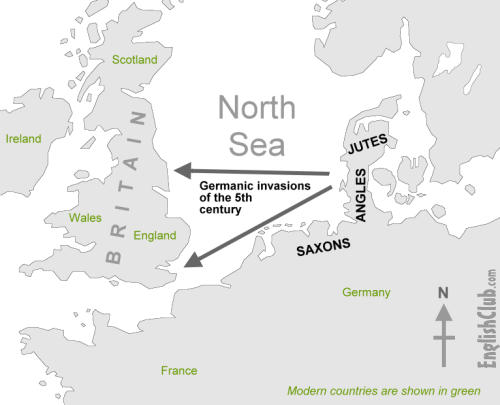The Incredible History of English - for kids
Imagine heading into the past and exploring the exciting records of the English language! Did you know that long ago, English was a tiny language spoken by tribes in England? Today, it is the language spoken by nearly a third of the world's population. Let's examine how it changed to become the diverse and frequently used language that it is today.
Roots Go Way Back:
Unbelievably, Hindi and Persian are language families that English is in! The Indo-European family of languages has a very long evolutionary history dating back thousands of years. As English developed, it spread and became increasingly particular, taking clues from other languages along the way.
From Old to New:
Not all English speakers spoke it as we do now. Say you were writing a word that had many turns and twists, such as "þaet" for "that" and "hūs" for "house." The Anglo-Saxon settlers of England centuries ago spoke this Old English.
Vikings and French Twist:
As time went on, some strong Scandinavian Vikings added their thoughts to the conversation. Then, in 1066, French-speaking warriors known as the Normans arrived and took control of England. English remained the language of the common people, while French became the language of the powerful. As a result of this fascinating blending, English gained thousands of new French words, expanding the vocabulary.
Shakespeare Steps In:
William Shakespeare, an artistic prodigy, rose to fame in the 16th century. He created new words and phrases that are still in use today by using English in such a magical way. More than 2,000 new words have been added to the English language by him!
Beyond Shakespeare:
There is still more to the story! Through trade and exploration, words from all over the world were included in English. The Spanish word "tomato" gave way to the Japanese word "sushi," and so on, until English became one of the world's most flexible and open languages.
Modern Twist:
The English of today is always changing. We learn new terms from technology, such as "selfie" and "hashtag," and globalization introduces us to cultures from around the world. Emojis are even emerging as a new form of communication!
Remember:
English is a living language, ever-changing and adapting. It's a bridge connecting people from different backgrounds, a tool for sharing stories and ideas. So next time you use English, remember its incredible journey and the vastness of cultures it touches!


Comments
Post a Comment